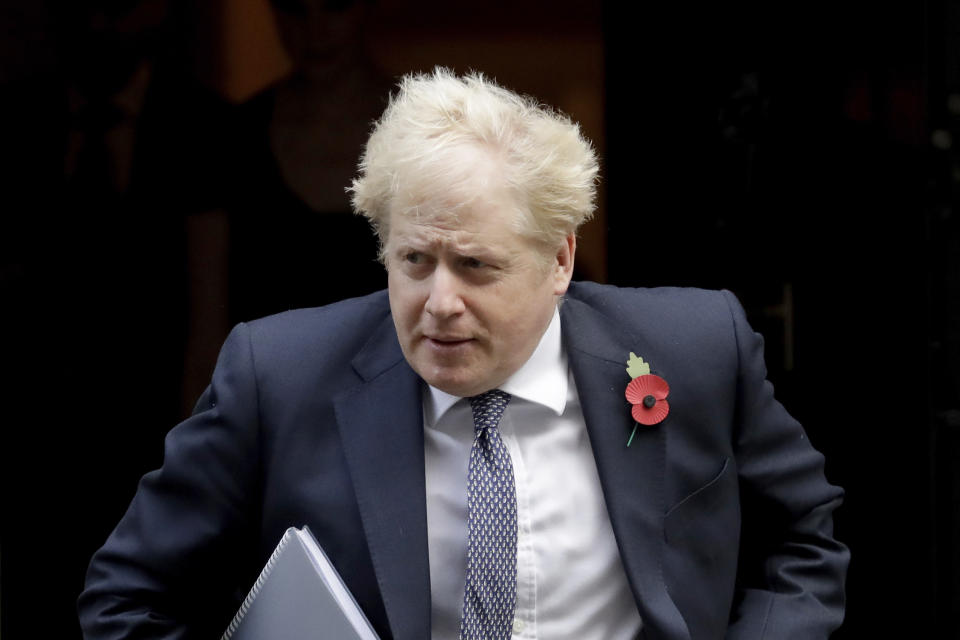'Exceptionally unclear' and 'vague': Boris Johnson’s COVID slogans condemned by scientists

The messaging and slogans on coronavirus from Boris Johnson and his government have been condemned by British scientists.
The prime minister was accused of being “exceptionally unclear”, while the government’s advice was dubbed “vague”.
In a damning report on the government’s COVID-19 messaging, Independent Sage said there had been a “lack of clarity” that caused “levels of confusion about the rules currently in place”.
The group of scientists, which operates independently from the government’s own Scientific Advisory Group for Emergencies (Sage), is chaired by Sir David King, the government’s former chief scientific adviser.
🚨New #IndieSAGE paper🚨
1. From Stay Home to Stay Alert, UK government messaging has been much discussed during the #COVID19 pandemic. #IndieSAGE has analysed its effects (March-Oct 2020) and makes recommendations for a communication reset.
🔗https://t.co/75GuD4bk4c
🧵 pic.twitter.com/HvHK3cll9U— Elizabeth Stokoe (@LizStokoe) November 16, 2020
Independent Sage has been critical of ministers handling of the coronavirus pandemic, saying in August the decision to relax the first national lockdown in England was “exactly the wrong approach”.
In its latest report, published on Monday, it documented the government’s public messages about coronavirus since the pandemic began.
The scientists criticised the “Hands. Face. Space.” slogan, saying: “Unless one already has an understanding of what each component of the three-word instruction ‘Hands face space’ means, its meaning is unclear.”
The group were also unimpressed with the government’s switch from its “Stay home” message to “Stay alert” in May.
The scientists wrote: “‘Alert’ is a cognitive state; it is subjective, open to interpretation, imprecise.
“The vague ‘Stay alert’ was extended across six new government messages that all contained hedges, conditions, and mitigations, none of which were any more behaviourally explicit than ‘alert’ itself.”
These new messages included “work from home if you can” and “stay at home as much as possible”.
The “Stay alert” message was eventually tweaked by the government following complaints about its vagueness.
The scientists were critical of the prime minister after he stumbled over his words during a Downing Street briefing, saying: “In early July 2020, Boris Johnson was exceptionally unclear when talking about contact tracing.”
Watch: Stay Alert message ‘isn’t clear enough’
They also pointed out that Johnson was criticised last month for his apparent failure to explain the Rule of Six.
The report said: “Much public discourse has been dedicated to, variously, the lack of clarity in UK government messaging, the levels of confusion about the rules currently in place and the timeliness of and preparations for successive amendments.
“Precise messaging is more readily understood which, in turn, enables adherence and consistent behavioural enactment.
“Imprecise, inconsistent, contradictory, untimely or vague messaging, by contrast, can lead to mistakes, perceived inequities, frustration and non-adherence.”
Independent Sage outlined five principles for an “effective COVID-19 lexicon”.
They advised that messaging never simply provides factual information; messaging should be precise and easy to adhere to; messaging should be “irony-resistant” by being clear; slogans should not come at the expense of clarity, and, finally, messaging should be underpinned by scientific evidence.
Watch: What is long COVID?
Coronavirus: what happened today
Click here to sign up to the latest news and information with our daily Catch-up newsletter

 Yahoo News
Yahoo News 

